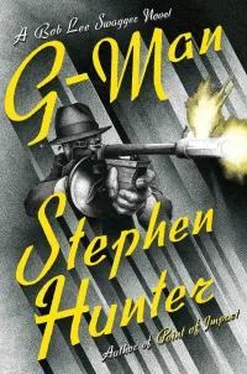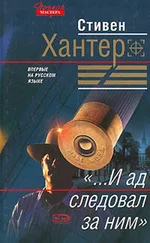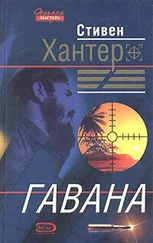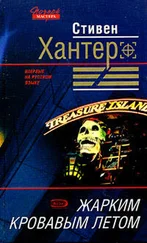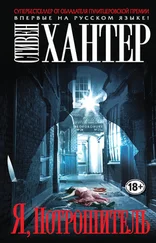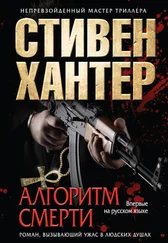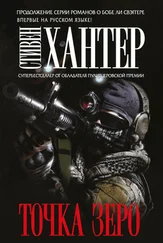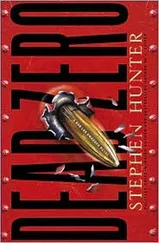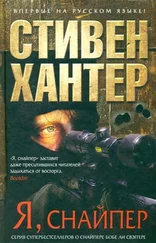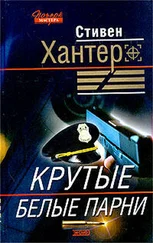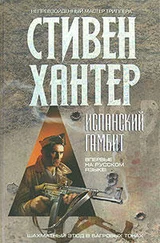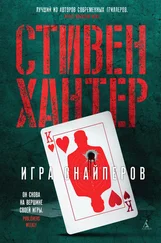Стивен Хантер - G-Man
Здесь есть возможность читать онлайн «Стивен Хантер - G-Man» весь текст электронной книги совершенно бесплатно (целиком полную версию без сокращений). В некоторых случаях можно слушать аудио, скачать через торрент в формате fb2 и присутствует краткое содержание. Жанр: Старинная литература, на английском языке. Описание произведения, (предисловие) а так же отзывы посетителей доступны на портале библиотеки ЛибКат.
- Название:G-Man
- Автор:
- Жанр:
- Год:неизвестен
- ISBN:нет данных
- Рейтинг книги:3 / 5. Голосов: 1
-
Избранное:Добавить в избранное
- Отзывы:
-
Ваша оценка:
- 60
- 1
- 2
- 3
- 4
- 5
G-Man: краткое содержание, описание и аннотация
Предлагаем к чтению аннотацию, описание, краткое содержание или предисловие (зависит от того, что написал сам автор книги «G-Man»). Если вы не нашли необходимую информацию о книге — напишите в комментариях, мы постараемся отыскать её.
G-Man — читать онлайн бесплатно полную книгу (весь текст) целиком
Ниже представлен текст книги, разбитый по страницам. Система сохранения места последней прочитанной страницы, позволяет с удобством читать онлайн бесплатно книгу «G-Man», без необходимости каждый раз заново искать на чём Вы остановились. Поставьте закладку, и сможете в любой момент перейти на страницу, на которой закончили чтение.
Интервал:
Закладка:
So the getaway stash made the most sense. A bad guy on the run would need to finance his travel. The folks he dealt with would be far from law enforcement, would take the dough without question in small increments as he voyaged, and it would be months before any of it came to Treasury’s attention and tracking efforts were started.
“A thousand?” said Bob to Jake, who sat across the conference room table from him. “How much is that worth in today’s money?”
“A thousand in 1934 buys about three hundred dollars’ worth of goods today,” said Jake.
“Ain’t getting rich on that,” said Bob.
“Don’t be so sure. It’s not the value, it’s the bill’s rarity. That makes it worth something, perhaps a lot more worth than a thousand. The numismatist told us it was quite rare, an AC-1934-A out of San Francisco. He said it was Friedberg-2212-G, rated as 66EPQ, which is called Gem Uncirculated. It’s pretty close to perfect. Worth about six or seven grand today, depending.”
“But that’s now. Then it was just flat 1934 one-grand value. After being walked through the cleaning process, it would go down to three hundred.”
“That’s right.”
“So it hardly seemed like killing money, like a big chunk of swag that enters legend, and if located, would confer a life of luxury on its locator.”
He put it down, picked up the map, or whatever it was. Well, map was too grand a word. It simply traced what appeared to be one wall of an irregular dwelling, with juts to sustain windows, and a diagonal of ten dashes leading off to the northeast quadrant, if the map was oriented with the north at the top, of which there was no indication. At the tenth step, in the same steady fountain-pen hand, a circle denoted what was certainly the trunk of a tree, and on the back side of the tree, from the wall of the house, if it was a house, was an X marking a spot.
“All of this stuff makes some sense if the year was 1940, the year of the big train robbery in Hot Springs, which rumor tied to Charles. But this was six full years earlier, and nothing happened down there in 1934. So we can discount the train business.”
“Got it,” said Jake.
“Why would he bury a treasure map under a house? He buries the map to buried treasure? Odd. Why wouldn’t he just bury the treasure under the house?” Bob asked.
“Maybe the ‘treasure’ was too big. Maybe it was some sort of contraband, and if he was caught with it, it meant jail. So he wanted it off the property. Did he ever say anything?”
“He died four years before I was born. I don’t know a thing about him.”
“Did your dad say anything?”
“Not a thing. But my grandmother told my mother, who told me that he had the bottle disease. His pleasure was rye, lots of it, lots and lots toward the end. He started going to the Caddo Gap Baptist Prayer Camp for help with it, but the bottle beat down the Lord, because he drank hard till the day he died.”
The real mystery was what happened in 1934 that prompted the gun to be hidden as well as the money, some kind of treasure buried in some unknowable place? And maybe sent him staggering down the Rye Highway toward a dissolution so deep, even the Baptists couldn’t help.
And all of it had to revolve around the last of the objects in the reliquary. The badge. Both his forefathers had worn badges, had been lawmen, and so as a totem the attraction to such emblems of state power must run strong in the Swagger blood. And his own son now wore a badge. Yet Swagger himself was an outlier from his own DNA, in that it had never drawn him in. He had no police impulses. The Corps, with its top-down, to-the-death mandates of discipline, had been enough, and when it was over, it was also not a bad thing to be done with certain ceremonial requirements that a police career would have maintained. And like his grandfather ruined by the song of hooch, he had that same weakness. So he’d been too drunk after invaliding out to go into the State Police, and had never felt the call that his father and his grandfather, and who knows what Swagger before then, had felt? The bottle was far more interesting than the badge, and though he hadn’t touched a bottle in years, it remained so.
When he picked it up, it meant nothing, delivered no charge. It was just a piece of — what? — an alloy of some sort, bronze, iron, maybe a salting of steel, crushed into a symbol of not merely justice but also authority and its facilitator, force. Had his grandfather worn this one? He looked carefully, and having no meaningful acquaintanceship with badges, only saw the random set of power emblems, as basically invented by the Roman Empire — that is, scrolls, raised lettering— embossed , that was the word — the whole thing a kind of mini shield that suggested a legionary’s strength and probity, though some Knights of the Round Table shaping had crept in, as it was more elegantly designed than the legionaries’ minimalist rectangle. It was heavy too, like a gun, much heavier and more substantial than it looked like from afar. In the dull but shadowless illumination of the overhead fluorescents of the law firm, it threw off glints of sparkle as you turned it, and the light caught or missed various heights and depths it wore on its uneven surface.
It didn’t say FBI. It said, in an arch across the top, JUSTICE DEPARTMENT, and in a straight line under some kind of bas-relief of blindfolded Greek Lady Justice, DIVISION OF INVESTIGATION.
“They didn’t become FBI officially till 1935,” said Jake. “I’m an expert, I looked it up on Wikipedia.”
“I should have done the same,” said Bob, still rapt in the presence of the badge.
“It was only a division for that year. That’s what they called it, the Division. Sounds kind of 1984 . The newspapers simply called it the Justice Department, or Justice. They liked the pun, as in ‘Justice fells Dillinger,’ that sort of thing.”
“I see,” said Bob.
“So, what do you want to do with this stuff, Bob? Take it? Leave it? Report it?”
“Well, I guess the money should be turned in to Treasury. It’s clearly a bank’s, not mine, so let’s get that one over with fast. Can you take care of it?”
“No problem.”
“Then, I’d like to xerox the map, just in case, just in case of I don’t know what. Maybe something will occur to me.”
“Makes sense.”
“As for the pistol, I think I’ll take that, at least for a little while. I want to shoot it, see what I can learn from it. If it was his pistol, maybe it’ll tell me something. Maybe we can communicate through the gun, since we both loved guns so much.”
“I don’t see any problems. Just don’t sell it. You can destroy it or keep it, but if you destroy it, it might open you up to destroying government property. I have to look into the law here.”
“Got it,” said Bob.
“There must be an old briefcase around here. We’ll put it in that.”
“Great.”
“And the ‘cylinder’?”
“You keep it for now. I’ll look in various books I’ve got, maybe I can come up with something.”
“And the badge?”
“Can you keep it too? I won’t know what to do with it until I figure out who and what he was. Let’s keep it here for a bit. In the meantime, I have to look into my grandfather’s life. I have a very good friend, Nick, recently retired from the Bureau, and maybe he can help me dig out old files. I can see if there was ever a Charles Fitzgerald Swagger on the payroll for a few months in 1934. Maybe that gun has some historical provenance and it should be returned to the Bureau, though they don’t have no museum. Maybe my grandfather’s career has been expunged; he got drunk one night and shot up a whorehouse, something like that.”
Читать дальшеИнтервал:
Закладка:
Похожие книги на «G-Man»
Представляем Вашему вниманию похожие книги на «G-Man» списком для выбора. Мы отобрали схожую по названию и смыслу литературу в надежде предоставить читателям больше вариантов отыскать новые, интересные, ещё непрочитанные произведения.
Обсуждение, отзывы о книге «G-Man» и просто собственные мнения читателей. Оставьте ваши комментарии, напишите, что Вы думаете о произведении, его смысле или главных героях. Укажите что конкретно понравилось, а что нет, и почему Вы так считаете.
